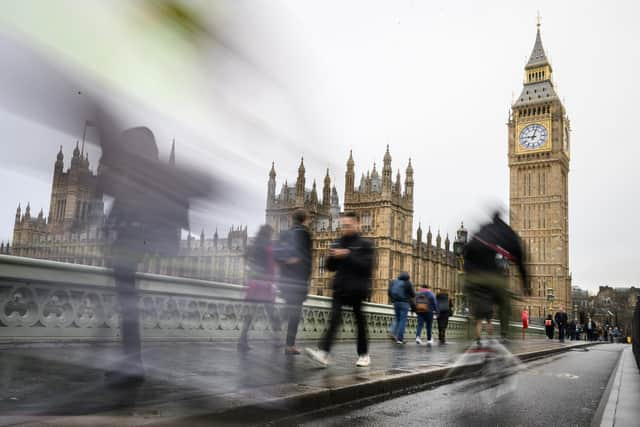An embarrassing moment for British democracy | Burnley Express Letters
and live on Freeview channel 276
With the world watching the House of Commons, what should have been a chance for cross-party unity, to discuss the SNP's motion urging an urgent ceasefire in Gaza turned into a complete farce.
An embarrassing moment for British democracy which sent an appalling message to both the international community and those at the heart of the suffering.
Advertisement
Hide AdAdvertisement
Hide Ad

Sir Lindsay Hoyle bent the rules in a frantic bid to save Keir Starmer from the looming embarrassment of a hundred of his own MPs rebelling to support the SNP's opposition day plea for peace. In the aftermath, he was forced to issue an apology and is now struggling to salvage his own political career.
In another bid to defend his actions, the Speaker implied that allowing the SNP motion to proceed to a vote could have exposed Parliament to the risk of a terrorist attack. Suella Braverman, the former Home Secretary who resigned under pressure for incendiary remarks, has exacerbated the situation by alleging that the nation is under the control of Islamists. This effectively demonises anyone advocating for a ceasefire as a promoter of hatred and incites cultural and religious divisions. Starmer and Hoyle bear responsibility for this. I hope they are proud of their actions.
During the chaos, sadly, the critical matter of Gaza was not even discussed. Shamefully used as a political football, to quell a potential uprising within the Labour party ranks. If Labour are resorting to such tactics now, exerting influence even over the Speaker, imagine what they will be like if they attain power.
Following the disgraceful events, rather than be ashamed of what happened the Labour Party then had the audacity to claim the moral high ground. Suddenly, previously absent Labour members appeared on social media parroting the party line of their calls for an "immediate humanitarian ceasefire" in a desperate attempt to salvage credibility. This attempt at damage control does little to mask the embarrassment of the situation or mitigate Starmer's mismanagement of the crisis.
Advertisement
Hide AdAdvertisement
Hide AdThe unfolding events reveal much about the Labour Party's current state under Starmer's leadership. It has become what he once criticised—a party devoid of vision, with a toxic desire for power at any cost and without any guiding principles.
The problems for Labour run deep, it is filled with opportunistic career politicians fixated solely on securing parliamentary seats and holding office. This is evident in the selection process where individuals favoured by the leadership are parachuted in, disregarding local candidates. They appear out of nowhere, professing affection for the town, its people, and the local football team. Every word and action is carefully vetted by the party leadership to avoid upsetting Starmer, with little regard for the perspectives of the constituents they aim to serve.
The policy of prioritising career politicians over dedicated local representatives permeates the Labour party. Burnley's Labour group leader himself missed out on the opportunity to become the Parliamentary Candidate not because of any lack of qualification, but due to his naivety about the internal dynamics at play. Sadly now, he channels his energy into social media diatribes against the new administration on Burnley Council and the Burnley Independent Group - for having taken a principled stand. Eventually, he might come to realise that instead he should reflect on his own party's internal mechanisms and how they failed him.
While nationally Labour may find solace in being favourites to win the General Election by merely not being the Tories, in Burnley the dynamics present a unique challenge where the outcome remains uncertain, and the stakes are high.
